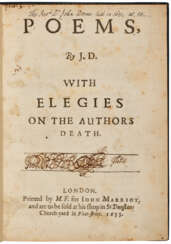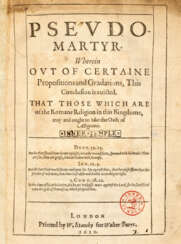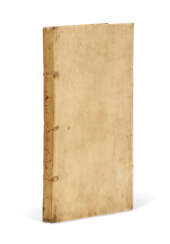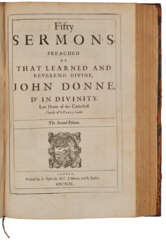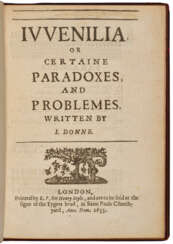джон донн (1572 - 1631)
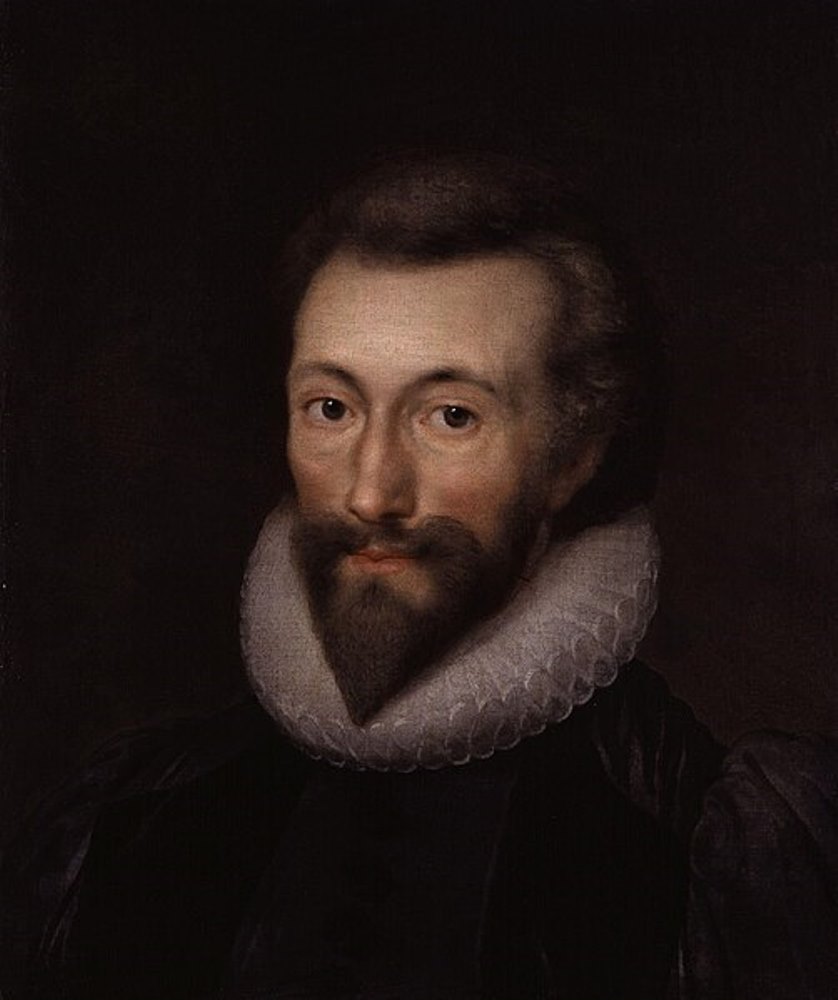
John Donne was a British preacher and poet, a major exponent of English Baroque literature.
His father was a wealthy merchant, and he was educated at Oxford, Cambridge, and Lincoln's Inn. Then began to write satires, which were willingly passed from hand to hand. The first three of Donne's famous satires date from 1593, and the others were written at various times before 1601. In 1594 he began his travels in Europe, accompanied the Earl of Essex on the capture of Cadiz in 1596 and on the expedition of 1597, and was in Italy and Spain.
In 1601. John Donne wrote his remarkable poem "The Progress of the Soul", in 1610 published his prose work against Catholics "Pseudo-Martyr", and in 1611. - an even harsher polemical treatise, Ignatius in Conclave. John Donne was also the author of many sonnets, love poems, elegies, epigrams, and religious sermons.
In 1621 John Donne was appointed rector of St. Paul's Cathedral in London, and near the end of his life he became a popular eloquent preacher whose sermons were eagerly printed and published. 160 of his sermons have survived, including the most famous, Death's Duel, which he delivered in Whitehall before King Charles I on February 25, 1631, a few weeks before his own death.


John Donne was a British preacher and poet, a major exponent of English Baroque literature.
His father was a wealthy merchant, and he was educated at Oxford, Cambridge, and Lincoln's Inn. Then began to write satires, which were willingly passed from hand to hand. The first three of Donne's famous satires date from 1593, and the others were written at various times before 1601. In 1594 he began his travels in Europe, accompanied the Earl of Essex on the capture of Cadiz in 1596 and on the expedition of 1597, and was in Italy and Spain.
In 1601. John Donne wrote his remarkable poem "The Progress of the Soul", in 1610 published his prose work against Catholics "Pseudo-Martyr", and in 1611. - an even harsher polemical treatise, Ignatius in Conclave. John Donne was also the author of many sonnets, love poems, elegies, epigrams, and religious sermons.
In 1621 John Donne was appointed rector of St. Paul's Cathedral in London, and near the end of his life he became a popular eloquent preacher whose sermons were eagerly printed and published. 160 of his sermons have survived, including the most famous, Death's Duel, which he delivered in Whitehall before King Charles I on February 25, 1631, a few weeks before his own death.


John Donne was a British preacher and poet, a major exponent of English Baroque literature.
His father was a wealthy merchant, and he was educated at Oxford, Cambridge, and Lincoln's Inn. Then began to write satires, which were willingly passed from hand to hand. The first three of Donne's famous satires date from 1593, and the others were written at various times before 1601. In 1594 he began his travels in Europe, accompanied the Earl of Essex on the capture of Cadiz in 1596 and on the expedition of 1597, and was in Italy and Spain.
In 1601. John Donne wrote his remarkable poem "The Progress of the Soul", in 1610 published his prose work against Catholics "Pseudo-Martyr", and in 1611. - an even harsher polemical treatise, Ignatius in Conclave. John Donne was also the author of many sonnets, love poems, elegies, epigrams, and religious sermons.
In 1621 John Donne was appointed rector of St. Paul's Cathedral in London, and near the end of his life he became a popular eloquent preacher whose sermons were eagerly printed and published. 160 of his sermons have survived, including the most famous, Death's Duel, which he delivered in Whitehall before King Charles I on February 25, 1631, a few weeks before his own death.


John Donne was a British preacher and poet, a major exponent of English Baroque literature.
His father was a wealthy merchant, and he was educated at Oxford, Cambridge, and Lincoln's Inn. Then began to write satires, which were willingly passed from hand to hand. The first three of Donne's famous satires date from 1593, and the others were written at various times before 1601. In 1594 he began his travels in Europe, accompanied the Earl of Essex on the capture of Cadiz in 1596 and on the expedition of 1597, and was in Italy and Spain.
In 1601. John Donne wrote his remarkable poem "The Progress of the Soul", in 1610 published his prose work against Catholics "Pseudo-Martyr", and in 1611. - an even harsher polemical treatise, Ignatius in Conclave. John Donne was also the author of many sonnets, love poems, elegies, epigrams, and religious sermons.
In 1621 John Donne was appointed rector of St. Paul's Cathedral in London, and near the end of his life he became a popular eloquent preacher whose sermons were eagerly printed and published. 160 of his sermons have survived, including the most famous, Death's Duel, which he delivered in Whitehall before King Charles I on February 25, 1631, a few weeks before his own death.


John Donne was a British preacher and poet, a major exponent of English Baroque literature.
His father was a wealthy merchant, and he was educated at Oxford, Cambridge, and Lincoln's Inn. Then began to write satires, which were willingly passed from hand to hand. The first three of Donne's famous satires date from 1593, and the others were written at various times before 1601. In 1594 he began his travels in Europe, accompanied the Earl of Essex on the capture of Cadiz in 1596 and on the expedition of 1597, and was in Italy and Spain.
In 1601. John Donne wrote his remarkable poem "The Progress of the Soul", in 1610 published his prose work against Catholics "Pseudo-Martyr", and in 1611. - an even harsher polemical treatise, Ignatius in Conclave. John Donne was also the author of many sonnets, love poems, elegies, epigrams, and religious sermons.
In 1621 John Donne was appointed rector of St. Paul's Cathedral in London, and near the end of his life he became a popular eloquent preacher whose sermons were eagerly printed and published. 160 of his sermons have survived, including the most famous, Death's Duel, which he delivered in Whitehall before King Charles I on February 25, 1631, a few weeks before his own death.

